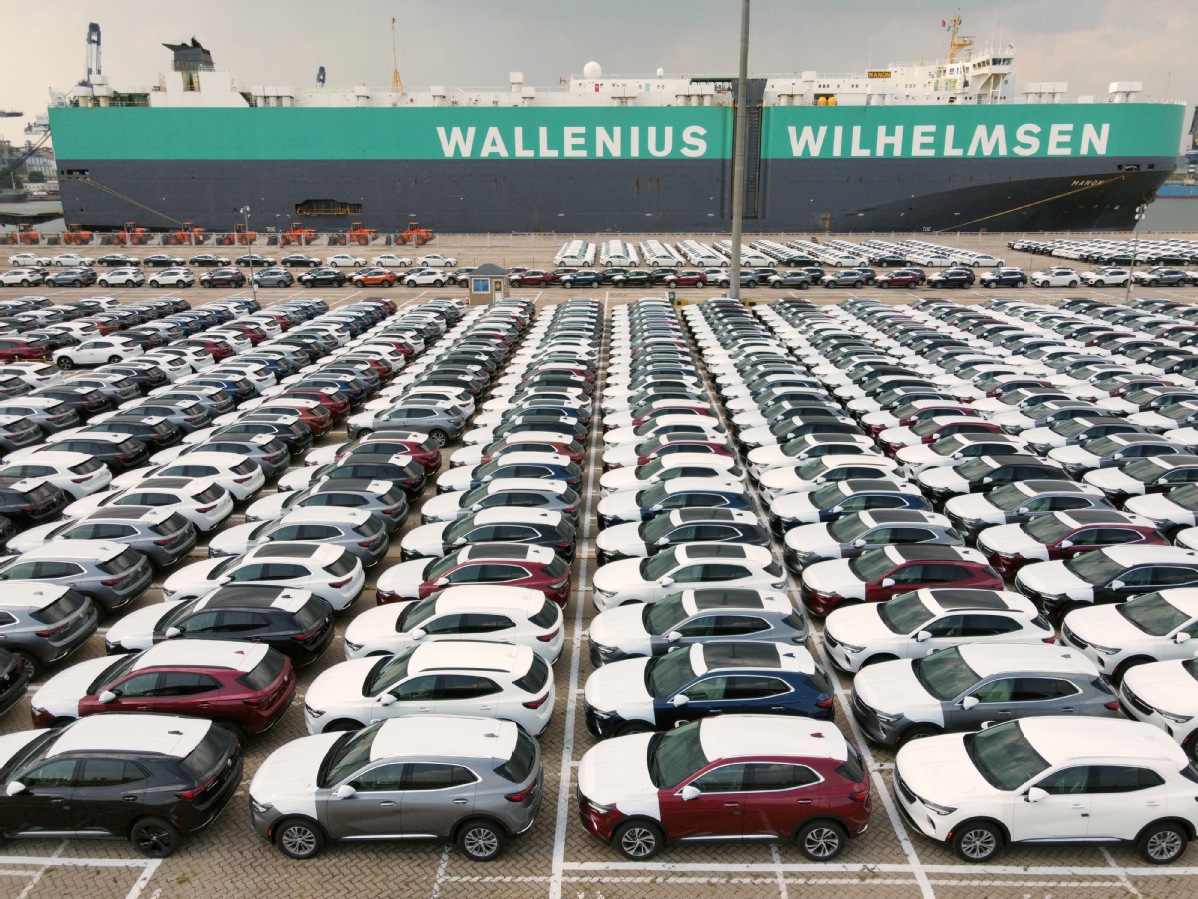Policy moves ensure China closely involved in global supply chains


China's timely and supportive policy measures will reinforce its connection to global supply chains, said an economist from Thomson Reuters.
China has been playing a huge role in driving global economic growth given its sheer size, population and geographic reach.
Its involvement in the development of the Belt and Road Initiative will generate more benefits in the areas of environment, sustainability and governance standards, paving the way for future growth, said Zoe Martinez, global trade lead for Asia and Emerging Markets at Thomson Reuters, a provider of business information services.
According to its recently released Global Trade Report, which surveyed 200 senior executives from multinational organizations across Asia, about 59 percent China-based executives said that they met their trade targets in 2020, and 88 percent are confident they will achieve their targets this year.
China was able to reestablish supply lines relatively quickly last year, and many foreign companies utilized supply chain diversification as part of a revamped trade strategy. About 70 percent of the survey's respondents in China have adopted this approach.
"Many China-based businesses entered new markets and as a result were able to extend their reach," Martinez said. "Having tools to support this agility boosted their resilience amid what has been a particularly turbulent global trading environment since the onset of the pandemic."
All these situations show that the feared economic decoupling of the world from China is unlikely, as Seattle-based coffee chain Starbucks Corp plans to expand its store numbers to 6,000 across China by 2022, and Swiss conglomerate ABB Group will start operations at a $150 million robotics factory in Shanghai in the first quarter of next year.
Thanks to continuous efforts for higher-level opening-up and effective control of COVID-19, China's actual use of foreign capital reached 672.19 billion yuan ($103.71 billion) in the first seven months, surging 25.5 percent year-on-year, and 26.1 percent from the same period in 2019, said the Ministry of Commerce.
"China has become a pioneer in the high-tech space, leading new innovations in areas such as 5G," she said, adding the country is in the driver's seat of upgrading trade policy that has transformed the business of trade in the region.
As Chinese manufacturers are transforming, the world is also seeing a lot more innovation and technology being driven from China. Chinese entities have made more lines of advanced technologies, Martinez said.
The research revealed that about 67 percent of executives in China are looking into digitization and global trade being made part of their investments because they are seeing a general trend-"digital transformation"-where companies are looking for ways to optimize their presence.
"It is also worth mentioning the growth of the Chinese brand. Before, certainly a lot of manufacturing was being done where 'Made in China' labels were being upended," she said. "But now, there is greater demand for Chinese goods."
The economist said it is encouraging that global companies in China are taking a comprehensive investment approach as this will help future-proof their businesses and deliver more value to China.
As China and its partners have been pushing for the Regional Comprehensive Economic Partnership agreement to become effective next year, and as the country prepares to join the Comprehensive and Progressive Agreement for Trans-Pacific Partnership, the study found that 73 percent of executives at Chinese high-tech companies are certain their organizations are utilizing trade agreements to their full potential.
Martinez said that the RCEP is all about enabling market access. The time is right for global companies in China to prepare themselves and evaluate if the partnership will deliver the goods.
In the context of free trade agreements, the RCEP will present greater opportunity for stronger partnerships among member countries. So, there will be greater flexibility to source materials from over 15 countries.
China aims to sign more free trade agreements while upgrading existing FTAs to further its opening-up. The country will step up efforts to form a high-standard FTA network that starts from neighboring economies, covers Belt and Road Initiative-related economies and has global reach, said Wang Shouwen, vice-minister of commerce.
China will further upgrade existing FTAs, including the FTAs with Singapore and South Korea, while accelerating negotiations for new FTAs, such as the China-Japan-South Korea FTA, the China-Gulf Cooperation Council FTA, the China-Norway FTA and the China-Israel FTA, Wang announced at a news conference in Beijing in late August.



































